I don’t know what’s best about a trio of stories in Variety that goes behind the scenes at WB and its film struggles and TV triumphs: the fact that there’s enough Kremlinology material to last right through the holiday or the sweet ills by R. Kikuo Johnson that show an embattled Kevin Tsujihara teetering near the WB water tower and studio facade.
As you must know by know studio head Kevin Tsujihara is on the hot seat for a series of dreadful film flops—including Jupiter Ascending, The Man from UNCLE, Our Brand is Crisis and Pan—sending WB tumbling to its second year at #3 in a row. It’s not exactly a disaster but not the gold chip stature the studio is used to having. And according to this piece, Tsujihara has a very hands on approach to the film studio, leaving him on the hot seat for the flops and putting an enormous amount pressure on next year’s Batman v Superman, Suicide Squad and Fantastic Beasts, a Harry Potter spin-off.
The articles also make it clear that running a Hollywood studio isn’t the easy task it used to be, what with VOD, streaming, changes to the TV model and revenues streams from overseas more important than ever. And by any measure, Warners’ TV fortunes are better than ever; it’s the biggest and most profitable producer of TV content and it’s reaching deeper into more tendrils of the business than ever before. But, there no escaping the urgency of the mission to catch up to Disney:
Another crucial opportunity is DC Entertainment. While Disney has been minting millions from the riches of its Marvel universe, analysts have been waiting for years for DC to demonstrate similar punch for Warner Bros. Meeting with investors a year ago, Tsujihara said that, in consumer products alone, DC lagged billions of dollars behind Marvel. If Warners could generate just half of what Marvel does, it could add $150 million to Time Warner’s profits, Tsujihara estimates.
While Tsujihara is given personal credit for persuading Rowling to make the Fantastic Beasts trilogy—and those films re the closest thing to a sure bet the studio has—next year’s slate doesn’t sound very confidence inspiring outside of DC: a remake of Tarzan (!) and a King Arthur reboot by Guy Ritchie, the guy who did so well with Man from UNCLE. WTF? If warmed over IP is the way to go, WB has a lock on it. Observers think Tsujihara would be wise to give up on greenlighting films and spend his time doing what he does best —streamlining the studio operations. When your number noe film booster is Brett Ratner, perhaps it is time to look in the mirror.
The urgency surrounding BvS is made clear in a sidebar interview with Ben Affleck, who plays Batman in the March films.
In case it wasn’t clear that expectations for “Batman v Superman: Dawn of Justice” are running extremely high at Warner Bros., star Ben Affleck put it in plain language.
“I think there is a ton of pressure on it,” Affleck said of the film, in which he plays Batman. “I mean I would be bulls—ting you to say there isn’t.”
But Affleck also know how to boost the home team:
“You’ll see next year they are going to have a great year,” Affleck said. “They are now developing … probably the single greatest under-exploited IP asset in the entertainment business, the DC comic world. And now they have started to exploit that and you are going to see that blossom. And, when it does, it’s going to be massive.”
Well speaking of massive, as anxiety inducing as Johnson’s images and WB’s film prospects may seem, the area where Tsujihara is shining is the TV world, and to a veteran Kremlinologist this piece on how TV and Film are working together at WB may suggest legacy enough for Tsujihara. While Disney moves in lockstep, and Marvel and Star Wars have already been indoctrinated into consumer products, TV and theme parks with alacrity and great profitability, WB has a history of “Siloed” divisions where chief execs fight with backstabbing and savagery worthy of Game of Thrones. However, Tsujihara has been forcing people to work together—without any beheadings one assumes—especially where DC Entertainment is concerned. Under his watch the DC characters are no conger controlled by the film division. With TV getting to jump in and play you see seven hours of DC themed tv on your screens each week. And it’s a group effort:
He established the studio’s equivalent of the Justice League. Every two weeks, top execs including DC Entertainment’s Diane Nelson and Geoff Johns, Warner Bros. Pictures’ Sue Kroll and Greg Silverman and Warner Bros. TV’s Peter Roth gather with Tsujihara to talk about all things DC, and coordinate strategies.
The group aims to be respectful of one another’s goals, and mindful of the danger of flooding the market with too much product. But TV, video games and consumer products no longer take a back seat to film. Prolific producer Greg Berlanti is approaching superhero status himself on the WB lot for his success in steering the DC-derived series — “The Flash” and “Arrow” (plus another on tap for midseason, “Legends of Tomorrow”) — that have turned around the fortunes of the CW, which Warner Bros. jointly owns with CBS Corp.
You’ll note the presence of DC’s CCO Geoff Johns in this group; I’m told Johns is the invisible force field shielding the underperforming DC Comics line from further tinkering at this point. But that is perhaps a story for another post. Anyway, this new arrangement is atonement for some long ago slights that are still remembered in the north….just like in Westeros.
That pecking order had been set a decade earlier, in 1999, sources say, when the WB Network (now the CW) was hot on a “Batman” prequel script from writer Tim McCanlies that revolved around the youthful adventures of Bruce Wayne. The project was shut down before it got to the pilot production stage after WB Pictures execs got wind of it, and worried that it would muck up their plans to revive “Batman” on the big screen. The WB Network was allowed to pursue a similar concept for Superman, which yielded the 10-year success of “Smallville,” but the earlier sting lingered.
Perhaps the biggest impact of the DC properties has been on the CW. “The Flash” and “Arrow” have become the backbone of a network that had been flagging and rudderless. CW also airs the femme-friendly “iZombie,” and has “DC’s Legends of Tomorrow” on tap for midseason. The appeal of these DC shows help CW maintain the SVOD output deals with Netflix and Hulu that have been crucial to its survival.
You’ll want to read all three of these articles for a glimpse at how DC comics are fitting into studio life now that everyone has moved west and is sharing holiday parties. As long as DC characters are performing well at the highest levels, no one in the executive suite is going to get too panicky over comics that sell about 20,000 copies a month. And that’s the good news.


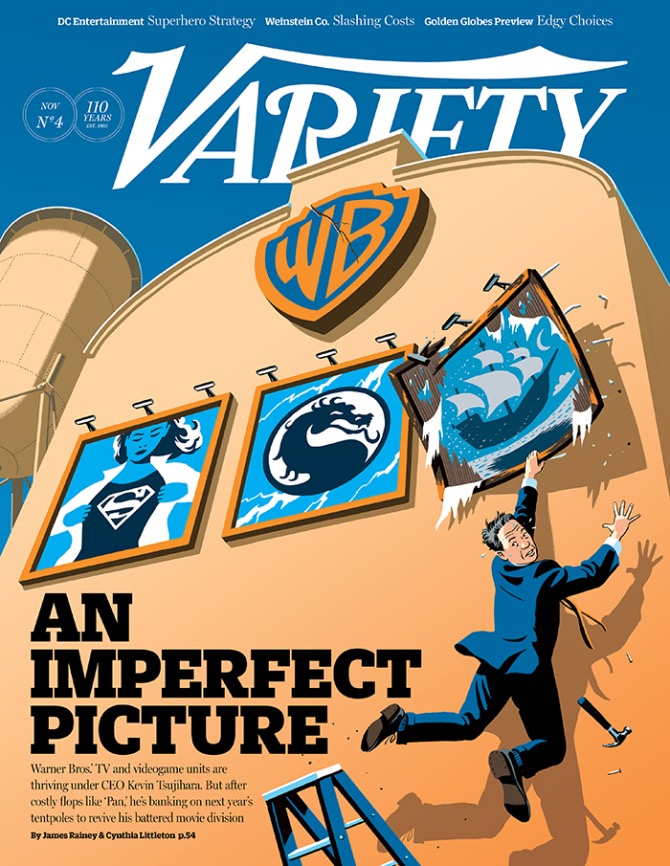
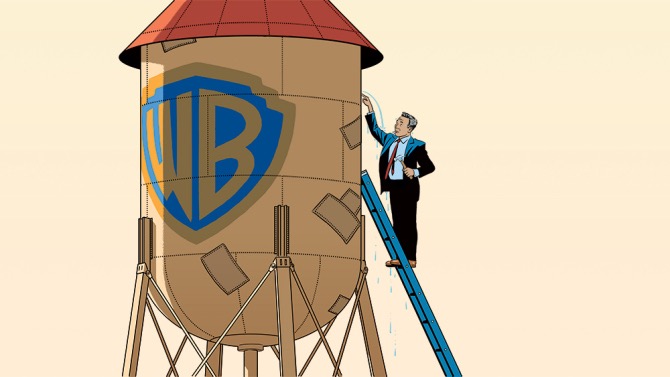
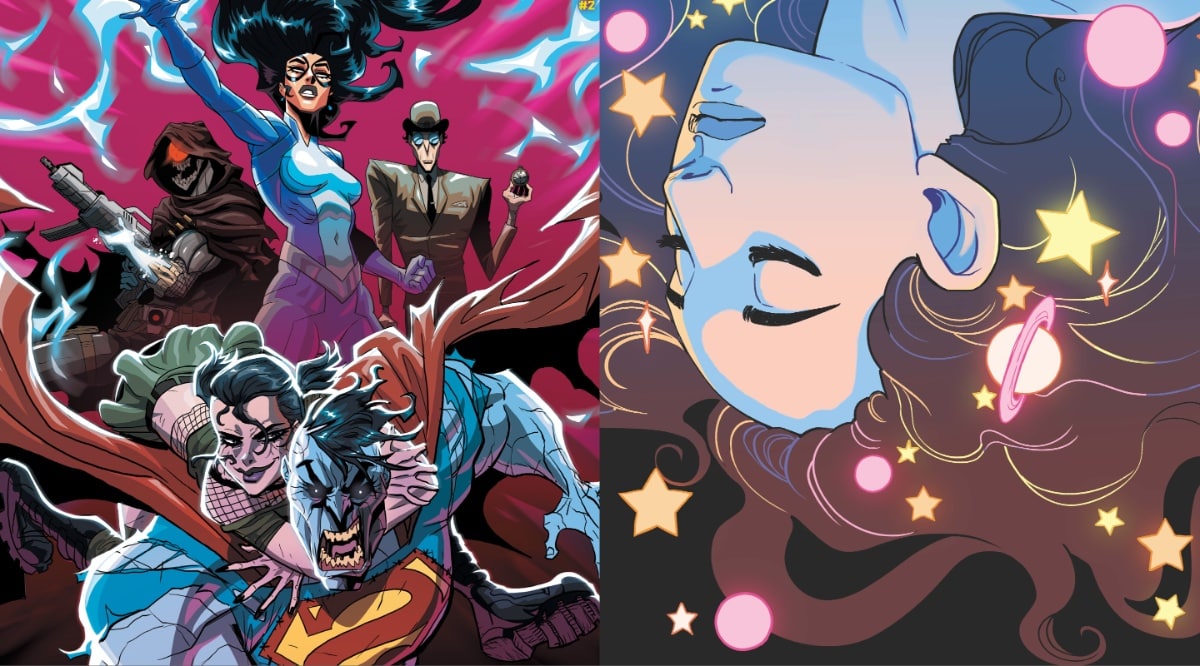
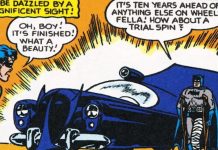
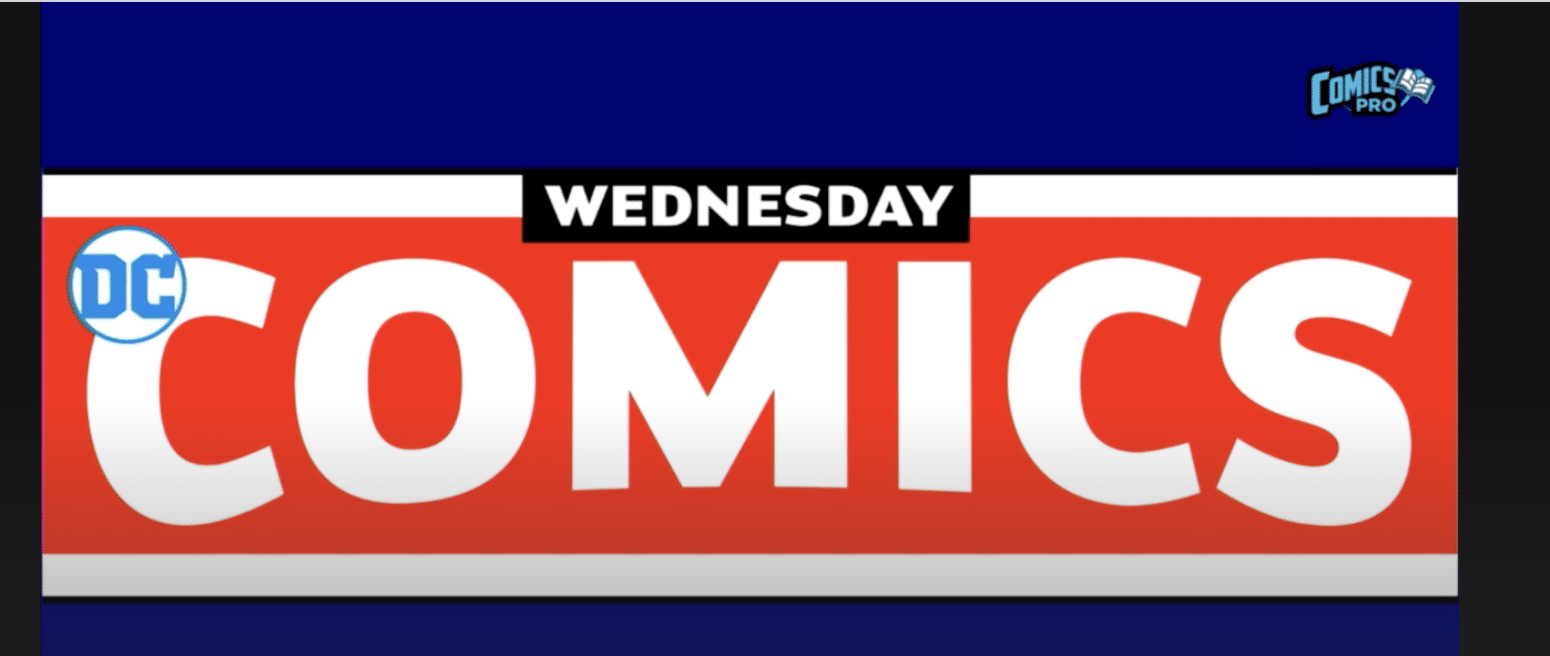



Remember UNBREAKABLE? It’s my favorite superhero movie (and Grant Morrison’s), and it wasn’t big and bombastic like the current Marvel and DC movies. Glad to see someone else remembers:
“15 years ago, UNBREAKABLE became the superhero movie we need now”
http://www.avclub.com/article/15-years-ago-unbreakable-became-superhero-movie-we-228635
UNBREAKABLE’s anti-heroic lack of bombast is precisely one of its (many) problems: after two hours of build-up, all we got was Bruce Willis strangling one bad guy to death by grabbing him in a chokehold from behind.
George: I read that article a few days ago and it made me think of what the latest Fantastic Four might’ve been if the studio hadn’t gotten scared and wanted a bombastic SFX fight scene at the end.
Oliver: Maybe the real problem with the finale is that we’re trained to expect bombast on the big screen. Maybe if Unbreakable had been a Netflix series we would’ve been okay with it.
In terms of Geoff Johns’ involvement, I wonder if he’s half the problem, being that he’s helped set the tone of the current comic universe where grimderp is confused for depth.
I suspect if they set up Bruce Timm in a Kevin Feige role, the cinematic DCU would be much improved.
Unbreakable? That piece of neowerthanian anti-comics propaganda?
Without giving away many spoilers, you’ll notice that the comics readers in the movie are either murderers (Mr. Glass) or potential murderers (Bruce Willis’ son). Yeah, great comic book movie that one.
Not that between it, Comic Book Villains and Kick-Ass movies have painted a flattering view of comics fans, of course.
“Oliver: Maybe the real problem with the finale is that we’re trained to expect bombast on the big screen.”
Every superhero movie now climaxes with a big CGI battle (explosions galore) and they’ve become increasingly similar.
I paid to see UNBREAKABLE in the theater after reading a positive review on AIN’T IT COOL NEWS and how this was one of the best superhero movies ever made. Man, do I regret listening to that review and paying money to see that boring as hell movie. If I had watched that movie on TV for free, I might have enjoyed it more since the movie seemed like a made for TV movie. I don’t go to superhero/fantasy movies to be bored to death by endless scenes of talking heads with little or no action.
Comments are closed.